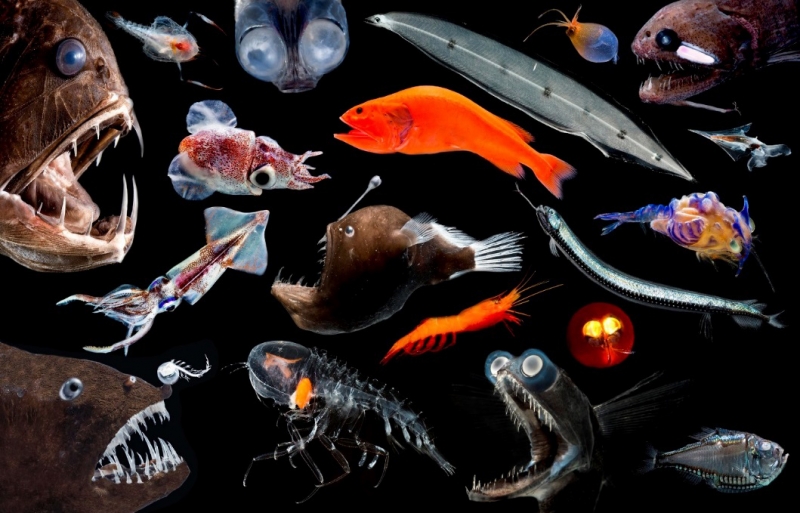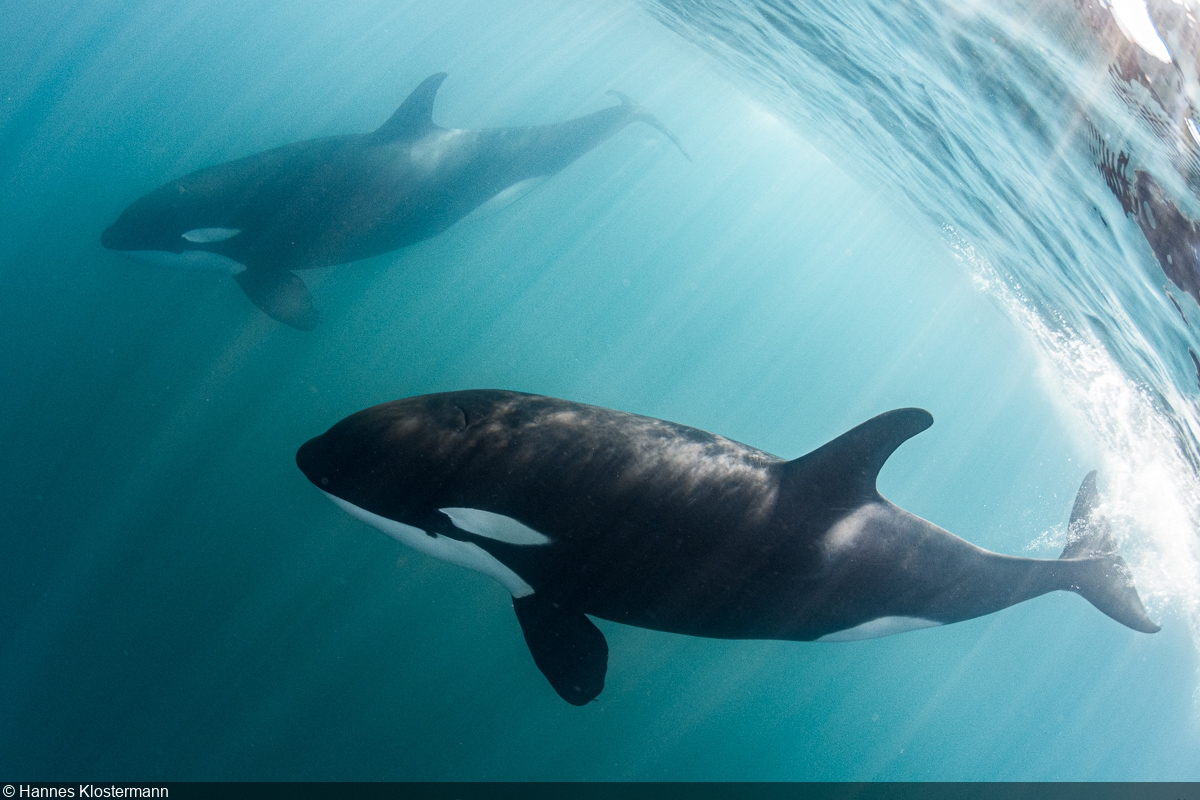
Pelagic Birding Australia's Wildlife
Animals in the Pelagic Environment. This chapter focuses on higher-level organisms in the marine environment, specifically vertebrates, all of which are pelagic animals that can swim (or fly) in the open ocean or coastal marine environments. (The previous Chapter 15 focuses on invertebrates - most of which are either attached or live on or with the seabed (the benthic environment).

The Deep Blue Species of sharks, Pelagic zone, Ocean life
Texas. Habitat/Habits: Minks prefer stream, pond and lake habitat; carnivorous feeding on small mam-mals, birds, eggs, frogs, fish and crayfish; mainly. nocturnal; dens in shoreline banks; swamps; breeds January through March; polygamous (males breed more than one female); 4-10 young are born blind and helpless.

A List of Pelagic Fish Sciencing
The pelagic zone is the largest habitat on earth with a volume of 330 million cubic miles. Different species of pelagic fish are found throughout this zone. Numbers and distributions vary regionally and vertically, depending on availability of light, nutrients, dissolved oxygen, temperature, salinity, and pressure. Last updated: 08/24/23

An InDepth Guide to Photographing Pelagic Animals
views 3,614,769 updated Pelagic zone The entire water column in marine ecosystems, regardless of depth. Plants and algae in the pelagic zone directly or indirectly support most of the ocean's animal life.

An assortment of deep pelagic animals. (a) Aeginura grimaldii (a... Download Scientific Diagram
Oceanic zone Sea floor Seamounts Hydrothermal vents Cold seeps Demersal zone Benthic zone Marine sediment v t e The pelagic zone consists of the water column of the open ocean and can be further divided into regions by depth. The word pelagic is derived from Ancient Greek πέλαγος (pélagos) 'open sea'. [1]

Which Animals Live on the Pelagic Zone? Sciencing
Ocean Zones The ocean water column is made up of five zones: the sunlight zone (epipelagic), the twilight zone (mesopelagic), the midnight zone (bathypelagic), the abyssal zone (abyssopelagic) and the hadal zone (trenches). Sunlit Zone The upper layer of the ocean is known as the sunlit, or euphotic, zone.

Which Animals Live on the Pelagic Zone? Sciencing
However, there are many fascinating pelagic zone animals: it is home to sharks, whales, turtles and more, who are adapted to hunting and traveling in and over the open ocean.

Which Animals Live on the Pelagic Zone? Sciencing
Large fishes such as tunas and sharks are found in this zone. That is why the smaller animals come up to this zone only at night to stay away from the large predators around. Mesopelagic Zone This zone extends from 200-1,000 metres below the epipelagic zone. This is known as the twilight zone.

Which Animals Live on the Pelagic Zone? Sciencing
The nine-banded armadillo, Texas rat snake, and short-lined skink lizard are some of the weird critters you will find there. Texas is also home to some animals with odd names like the Northern black-bellied whistling duck, the Gulf stone crab and the Texas blind salamander. Texas has over 350 miles of coastline.

Life in the Deep Sea Let's Talk Science
The Pelagic Zone. The word pelagic is derived from the Greek work pélagos, meaning open ocean.. On top of this, many pelagic animals that are not targeted by the fishing boats, such as dolphins and turtles, sometimes also get affected by negative fishing methods. The different pelagic sub-zones Epipelagic - The Illuminated Surface zone
/oceansunfish-markconlin-getty-56a5f7a65f9b58b7d0df515e.jpg)
Find out What the Pelagic Zone Is
The pelagic zone is subdivided into vertical zones, based on factors such as sunlight amount. While these waters are known as the "deserts of the sea", a wide variety of organisms still call the open ocean their home.. Shields, Brenton. 2017. "What Animals Live in the Mesopelagic Zone". Sciencing. Visited on 17 January 2019. https.

Which Animals Live on the Pelagic Zone? Sciencing
Animals Living in the Pelagic The water in the ocean that is not near the bottom or near land mass is known as the pelagic zone. The origin of the word is from the Greek language and it means 'open sea'. As you go down the depths of the ocean the property of the water starts to change.

An InDepth Guide to Photographing Pelagic Animals
Many species that live in the open ocean (or pelagic realm) truly live in an ocean universe. More than 70% of the Earth's surface is covered by ocean, and it is important to remember that more than 50% of the Earth's surface is covered by ocean that is at least two miles (3.2 km) deep.. Animals living in the bathypelagic zone or deeper.

Which Animals Live on the Pelagic Zone? Sciencing
The pelagic zone—the vast volume of open-ocean water from the surface to the seabed—is the largest living space of the planet. This three-dimensional environment holds half of the global.

An InDepth Guide to Photographing Pelagic Animals
The pelagic zone is home to many organisms, including phytoplankton, jellies, octopuses and squid, bony fish, sharks, and marine mammals. Sea turtles and seabirds also spend most of their lives.

Timeline Photos Pew Environment Group Facebook Silky shark, Largest sea creature, Deep sea
525 species The pelagic zone consists of the water column of the open ocean, and can be further divided into regions by depth, as illustrated on the right. The word pelagic is derived from Ancient Greek πέλαγος 'open sea'. The pelagic zone can be thought of as an imaginary cylinder or water column between the surface of the sea and the bottom.